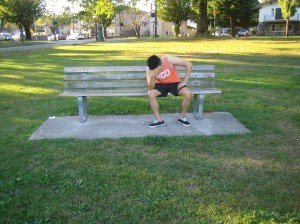Heat Exhaustion: First Aid, Prevention, and the Role of Food & Hydration (Canada)
Heat exhaustion occurs when the body produces more heat than it can release, most often during hot weather, physical exertion, or prolonged outdoor work—especially when dehydration is present. In Canada, heat-related illnesses are a growing concern during summer heat waves, outdoor sporting events, construction work, and community festivals.
From a first aid and workplace safety perspective, heat exhaustion is a medical warning sign. If it is not treated promptly, it can progress to heat stroke, a life-threatening emergency.
Why Heat Exhaustion Is Dangerous

The body cools itself mainly through sweating. When fluid levels drop:
-
Sweating becomes less effective
-
Core body temperature rises
-
Vital organs begin to suffer
🚨 Untreated heat exhaustion can progress to heat stroke, where body temperature may reach 40°C (104°F) or higher, increasing the risk of:
-
Brain damage
-
Organ failure
-
Cardiac complications
-
Death
This is why heat exhaustion is emphasized in Canadian first aid, CPR, and occupational safety training.
Preventing Heat Exhaustion: Food & Nutrition Support
While hydration and cooling are the first priorities in first aid, nutrition plays an important preventive role, especially for people working or exercising in hot environments.
Foods That Support Temperature Regulation
The hypothalamus helps regulate body temperature. Foods that support general metabolic and endocrine health include:
-
Leafy greens (spinach, kale, collards)
-
Broccoli and carrots
-
Seaweed
-
Fatty fish such as salmon and tuna
-
Nuts (peanuts, cashews)
-
Olive oil
These foods support overall energy balance and recovery during prolonged heat exposure.
Fruits & Vegetables for Hydration
High–water-content foods help maintain hydration, especially when appetite is reduced in hot weather:
-
Watermelon (excellent for hydration)
-
Cucumbers
-
Oranges
-
Apples and pears
-
Tomatoes
-
Pineapple
💡 Tip: Watermelon can be eaten fresh, added to fruit salads, or blended into water for a cooling drink.
Proper Hydration: A First Aid Priority
Food alone is not enough to prevent heat illness. Fluid intake is critical.
Recommended hydration strategies:
-
Drink water regularly, not just when thirsty
-
Include soups or broths for electrolytes
-
Use low-fat milk or nut-based beverages with meals
-
Cold soups like gazpacho (hot weather)
-
Warm soups like miso (cooler days with exertion)
⚠️ Thirst is already a sign of early dehydration.
What to Avoid in Hot Conditions
To reduce the risk of dehydration and heat illness:
-
Avoid caffeine (coffee, energy drinks, chocolate)
-
Avoid alcohol
-
Avoid heavy, greasy meals before exertion
Caffeine acts as a diuretic, increasing fluid loss and worsening dehydration.
First Aid Reminder: When to Act Immediately
Seek urgent medical help or call 911 if someone shows signs of:
-
Confusion or altered consciousness
-
Hot, dry skin or stopped sweating
-
Vomiting
-
Collapse
-
Seizures
Heat stroke is a true medical emergency and is covered extensively in Canadian CPR and first aid certification programs.
Key Takeaway for First Aid & Workplace Safety
Heat exhaustion is preventable with proper hydration, nutrition, rest breaks, and early recognition. Food choices help support hydration, but water, shade, cooling, and rapid response are the foundation of first aid care.
